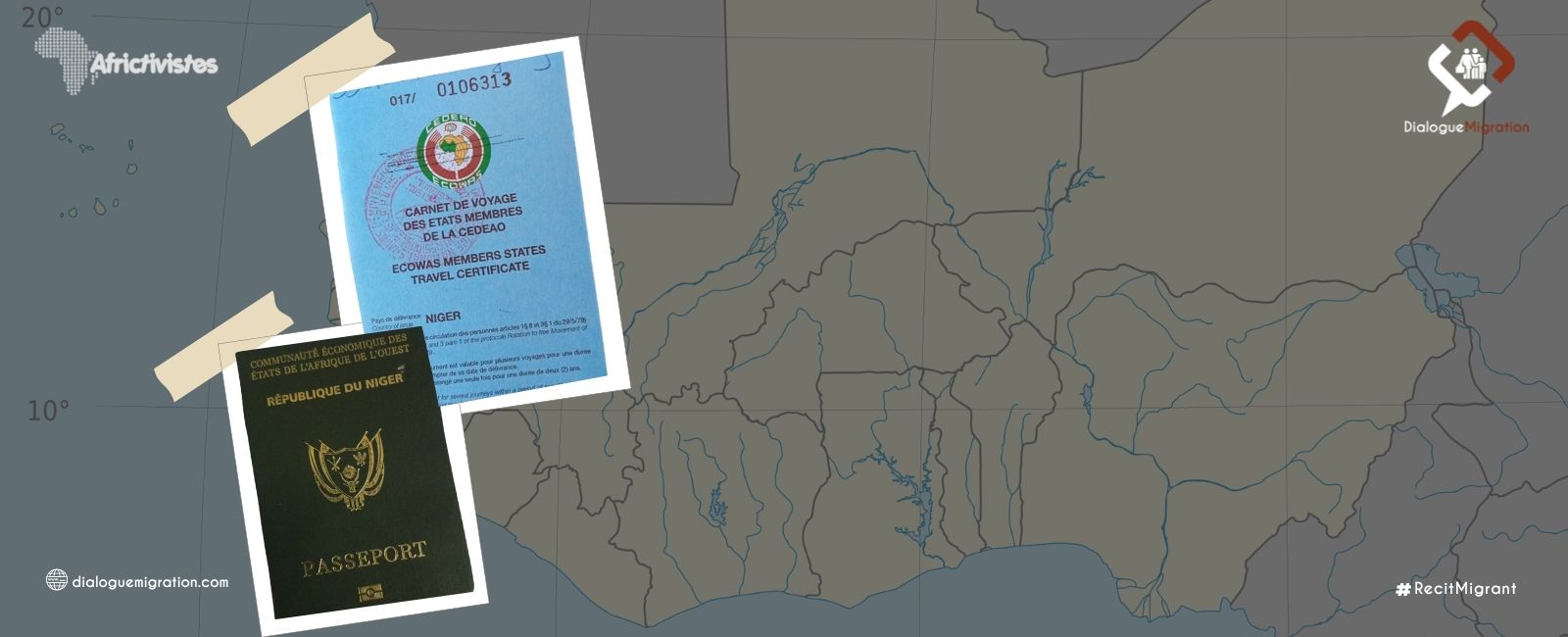

In sub-Saharan Africa, particularly in the ECOWAS (Economic Community of West African States) area, there is a high mobility of people and goods. Moreover, the citizens of the ECOWAS area are among the most mobile countries in the world. According to the document entitled “The ECOWAS Member States’ Common Approach on Migration”, population censuses indicate that countries in the region are home to some 7.5 million migrants from another West African country. That’s nearly 3% of the region population.
To facilitate movement of people, Member States adopted the Protocol on the Free Movement of Persons since the 1970s. To this end, ECOWAS has obtained from the member countries the abolition of visas and the standardization of travel documents. These documents include the ECOWAS Travel Diary, the ECOWAS Biometric Card and the ECOWAS Passport.
Dialogue Migration comes back to these documents that have the gift of breaking down barriers and facilitating travel within ECOWAS.
ECOWAS Biometric Card
Before the introduction of the Biometric Card, citizens in the region used the CEDEAO travel booklet. This blue, non-digitized travel document was instituted by ECOWAS in 1985. It allowed citizens of the Member States to move freely within the area.
From 2014, ECOWAS Member States opted for “auniform travel document, capable of facilitating and simplifying the movement of Community citizens across the borders of Member States”. This document is none other than the ECOWAS biometric identity card.
The ECOWAS biometric identity card is secure, a modern identity document that allows travel in the community, in accordance with the measures introduced by ECOWAS. Thus, in some countries, it is equipped with a chip containing the filiations and biometric informationof its holder, which should serve, within ECOWAS, as an identity card, health card, driving license, etc. In fact, the Biometric Identity Card is generally used as an identification and travel document at the level of police checkpoints on the borders and this is only in the countries of the ECOWAS area.
Nowadays, most Member States have adopted the Biometric Identity Card. Nevertheless, the ECOWAS travel book is still in force in the Community area, following the example of Niger, where it is the travel book that continues to be issued to applicants.
The passport
The ECOWAS Passport is an official travel document establishing the identity of its holder by which a country authorizes its national to travel abroad and on which the control stamps of the immigration services of the countries visited are affixed. Likewise, this document guarantees its holder the recognition and protection of the authorities of the countries to which he will travel. The passport of the Economic Community of West African States (ECOWAS) is an individual and personal document.
How do I obtain these travel documents?
In Niger, for example, the Directorate of Territorial Surveillance (DST) is responsible for issuing the ECOWAS Travel Carnet, the Biometric Card and the ECOWAS passport for nationals.
The citizen must provide the following documents:
● A duly completed travel carnet form bearing the stamp duty of CFAF 3,000 for the travel carnet only,
● A legalized photocopy of the national identity card or consular card,
● A legalized photocopy of the birth certificate,
● A legalized photocopy of their nationality,
● 02 recent passport photos,
● A copy of the diploma proving the applicant’s function,
● A certificate of residence,
● And establishment fees set at 5,000 FCFA for the ECOWAS biometric card and 35850 FCFA for the ECOWAS Passport.
In Niger, the passport is valid for 05 years from the date of issue. On the other hand, the Travel Book has a validity period of 02 years from the date of its issue.


